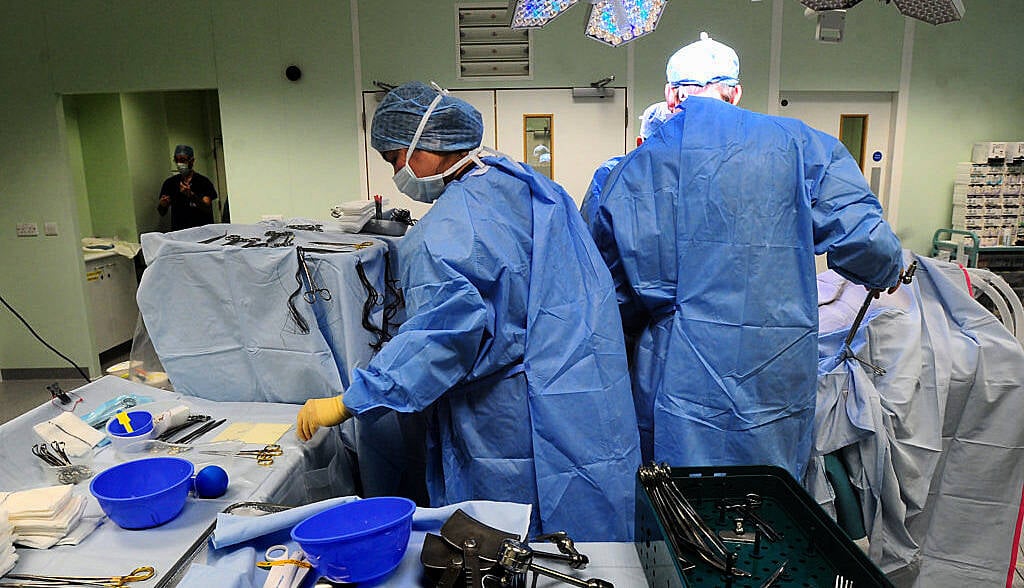Health
Women Experience Higher Distress Levels During Cancer Diagnosis

Data from a recent study reveals that women experience significantly higher levels of distress during cancer diagnosis and treatment compared to men. This finding comes from Ireland’s first comprehensive research on gender-based distress in cancer patients in a decade. The study, conducted by a collaboration between St James’s Hospital, the Departments of Psychiatry at St James’s Hospital and Trinity College, and Tallaght University Hospital, included 142 participants and highlighted critical differences in emotional responses to cancer.
The data indicates that up to 46 percent of women reported experiencing extreme distress at the time of diagnosis. In contrast, only 18 percent of men reported similar levels of distress. During treatment, 21 percent of women experienced extreme distress compared to just 5 percent of men. Notably, many patients perceived their families as more distressed than themselves, underscoring the emotional toll that cancer takes not only on individuals but also on their loved ones.
Impact on Daily Life and Psychological Support Needs
Patients reported that cancer significantly affected various aspects of their lives, with work, fatigue, and fear of the future being the most adversely impacted areas. Surprisingly, only 3 percent of patients indicated extreme difficulties in their relationships. The rising global burden of cancer—with approximately 20 million new diagnoses annually—highlights the urgent need for psychological support services tailored to patients’ needs.
The study, titled “Cancer Patient Distress – Roles of Gender, Family and Psychological Care,” was published in this month’s Irish Medical Journal and represents a vital step in understanding the psychological challenges faced by cancer patients. Among the female participants, breast cancer was the most prevalent diagnosis, accounting for 52 percent, followed by gynaecological cancers at 13 percent and colorectal cancers at 8 percent. For male patients, lymphoma and leukaemia were most common at 22 percent, followed closely by colorectal, prostate, renal, and bladder cancers at 18 percent each.
At the time of the study, 54 percent of patients had received their diagnosis within the previous year, while nearly 31 percent were experiencing a recurrence. The most common treatment modality reported was chemotherapy, administered to 85 percent of participants, followed by surgery at 40 percent. Other treatments included steroid therapy for 37 percent, radiotherapy for 28 percent, and hormonal therapy for 9 percent.
Need for Enhanced Psychological Support Services
The research underscores the significant distress experienced by patients, especially women, at diagnosis and during treatment. More than two-thirds of participants rated their cancer diagnosis as either very distressing (33 percent) or extremely distressing (36 percent). Women reported higher distress levels, with 46 percent indicating extreme distress at diagnosis compared to 18 percent of men. Interestingly, the study found that the level of distress at diagnosis was not related to cancer type or a history of psychiatric issues.
Furthermore, almost half of the patients rated their treatment as very or extremely distressing, although distress levels during treatment were generally lower than at diagnosis. A considerable proportion of patients—28 percent—identified work as the area of life most severely affected by cancer, followed by fatigue at 19 percent and fear for the future at 17 percent. Only 23 percent felt they were coping very well with cancer treatment and its side effects.
The study’s co-authors highlight the need for improved psychological support for cancer patients, particularly women, during both diagnosis and treatment. They emphasize the importance of gender-aware, family-oriented psychological support systems in light of the high levels of distress reported. As noted, services are evolving under the National Cancer Strategy 2017-2026, and this research reinforces the ongoing necessity of such services for the Irish population.
The findings serve as a critical reminder of the psychological challenges faced by cancer patients and the importance of addressing emotional well-being alongside physical health in cancer care protocols.
-

 Top Stories3 months ago
Top Stories3 months agoTributes Surge for 9-Year-Old Leon Briody After Cancer Battle
-

 Entertainment4 months ago
Entertainment4 months agoAimee Osbourne Joins Family for Emotional Tribute to Ozzy
-

 Politics4 months ago
Politics4 months agoDanny Healy-Rae Considers Complaint After Altercation with Garda
-

 Top Stories4 months ago
Top Stories4 months agoIreland Enjoys Summer Heat as Hurricane Erin Approaches Atlantic
-

 World5 months ago
World5 months agoHawaii Commemorates 80 Years Since Hiroshima Bombing with Ceremony
-

 Top Stories3 months ago
Top Stories3 months agoNewcastle West Woman Patricia Foley Found Safe After Urgent Search
-

 Top Stories5 months ago
Top Stories5 months agoFianna Fáil TDs Urgently Consider Maire Geoghegan-Quinn for Presidency
-

 World5 months ago
World5 months agoCouple Convicted of Murdering Two-Year-Old Grandson in Wales
-

 World5 months ago
World5 months agoGaza Aid Distribution Tragedy: 20 Killed Amid Ongoing Violence
-

 World5 months ago
World5 months agoAristocrat Constance Marten and Partner Convicted of Infant Murder
-

 Top Stories4 months ago
Top Stories4 months agoClimbing Errigal: A Must-Do Summer Adventure in Donegal
-

 Top Stories4 months ago
Top Stories4 months agoHike Donegal’s Errigal Mountain NOW for Unforgettable Summer Views









